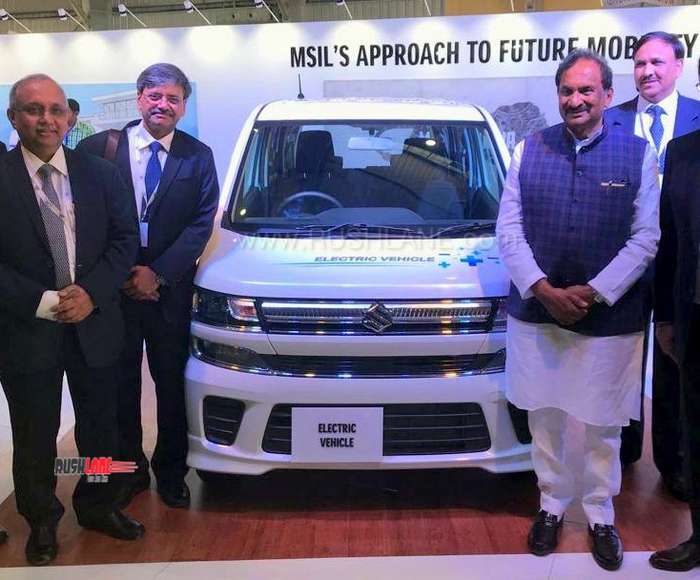
Maruti Suzuki India Limited, leading automakers in the country, plan to launch their first electric car in 2020. It will most likely make debut at the 2020 Auto Expo in Feb next year. It will be a small electric car, which is reportedly going to be based on new generation WagonR.
Maruti is surely changing gears, as far as tech is concerned (yesterday announced that they are going to stop selling diesel cars). Conventionally a petrol car maker (diesel engine borrowed from Fiat), Maruti is going to enter an unchartered territory next year. The target customer might be totally different.
WagonR is one of the best selling car in India. It has regularly featured in the list of top 5 cars sold in India. One of the biggest reason behind the success of WagonR, apart from its practicality, is its affordable price tag. Price of a petrol powered WagonR starts from Rs 4.3 lakhs, ex-sh. But electric cars are expensive. In an interview with Times of India, Maruti Suzuki revealed that the price of small electric car could be up to Rs 12 lakhs.

That’s a lot of money for a car of WagonR’s size. It will definitely not help Maruti to generate sales, especially at the start with the infrastructure is not available for the successful working of EV mobility. RC Bhargava, Chairman of Maruti Suzuki has cited that the price of electrification of a small car would be way beyond the reach of a buyer in the small car segment. Would a small car buyer, who would normally have to shell out Rs.4 lakhs for a petrol vehicle, escalate his budget to Rs.12 lakhs for an electric car?
The other constraint is the percentage of GST. Though this percentage on an electric car is at 12 percent as against 28 percent on a petrol car, the Government of India has not extended the subsidy under the FAME 2 incentive scheme meant for private electric vehicles, as the same has been extended for commercial segment only.
The question of charging stations is another major concern; with most car owners parking their cars outside. Quick charging stations and charging infrastructure is vital to the success of electric cars in India; which to date is sorely lacking. Suzuki has gone ahead in its endeavor to set up a lithium ion battery plant in Gujarat in association with Toyota.
A recent survey showed off that India has only 350 public EV charging stations as compared to over 57,000 petrol pumps. In comparison, China had over 2 lakh charging points at the end of 2016. It is for the same reason, that Tata Motors has also shown reluctance is launch of an e-car citing the grossly underdeveloped charging infrastructure in the country. The company had developed electric versions of the Tiago and Tigor but plans of launch have been put on the back burner. Mahindra on the other hand have promised to launch an electric version of KUV100 this year and an electric version of XUV300 in 2020.

